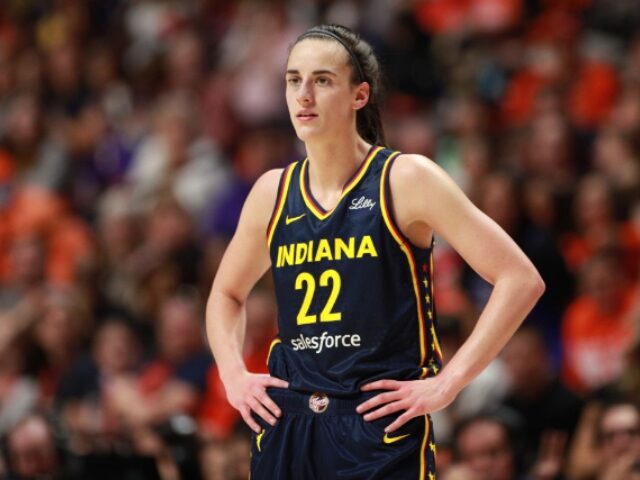The angry reaction of many of Caitlin Clark’s fans after she claimed to be the beneficiary of “white privilege” has convinced Megan Rapinoe’s wife and podcast co-host Sue Bird that America has “race issues.”
After receiving Time Magazine’s Athlete of the Year award for 2024, Clark used a considerable portion of her interview with the magazine to cite “white privilege” and laud the achievements of black players in the WNBA.
“I want to say I’ve earned every single thing, but as a white person, there is privilege,” Clark said in the interview. “A lot of those players in the league that have been really good have been Black players. This league has kind of been built on them.
“The more we can appreciate that, highlight that, talk about that, and then continue to have brands and companies invest in those players that have made this league incredible, I think it’s very important. I have to continue to try to change that. The more we can elevate Black women, that’s going to be a beautiful thing.”
On the most recent episode of her podcast A Touch More, with Rapinoe, Bird cited the backlash to those remarks as proof that race is still a major problem in America.
“Now this faction of her fanbase, which we’ve discussed before, that is now disgusted with her acknowledging, is just showing they were never really here for basketball,” Bird said. “… Which, by the way, just proves that there are issues with race in this country. Like, to me, that just proves it. And I think where I’ve landed is I’d almost want to pose some questions.”
Bird questioned whether any backlash would have ensued had a black player been viciously fouled the way Clark was during her rookie season.
“I personally think she deserves to be Time Athlete of the Year,” Bird continued. “I think she earned that, and she’s like, yeah, ‘I’ve done enough to earn this,’ and I agree and also is acknowledging her White privilege, and that is something that you know you’re talking about your experience, that’s something I’ve had to acknowledge in my experience. I’ve won the championships, I’ve done the things, and there’s this other part to it that I’m also going to acknowledge.
“And that to me is just is the world we live in, and to say it doesn’t exist is really saying you don’t live in the same world, or you’re not seeing the same things, and that’s obviously the root of all the conversations that we see today, not just in women’s basketball, literally in our country period.”
Rapinoe then chimed in, blasting conservative media who had largely supported Clark during the season and were now critical due to her comments about “white privilege.”
“I think what Caitlin did in her quotes, or in the article, was speak explicitly about her White privilege, like and that is what is receiving so much criticism or backlash, and like that is the lesson,” said Rapinoe. “So, you know, for conservative media coming at her now that obviously, they’re just showing their whole a–.
“If fans are upset about her saying that and just acknowledging what is true, I think that says a lot. But I think the more that you speak directly to it the clearer it becomes what your stance is, and then you can’t be used in that way. It doesn’t really leave your beliefs or your stance as a white player to any sort of interpretation.
“You’re taking the space and owning the narrative yourself. I think another thing that I’m constantly trying to think of and be aware of, and I want other people to be aware of also, anytime there is a positive story in women’s sports, the area, the sort of quote-unquote area is immediately flooded with divisive narratives.
“But for all of us to just be aware of that, that anytime there’s anything positive or any honestly just any news at all in women’s sports, it’s just like immediately flooded with insanity and really divisive narratives. And I think to that, like when we as athletes are being used, when is your narrative, when is your likes being used, when are the things that you’re saying being used.
“You know, the sort of like ecosystem of people in women’s sports that really do care about whether it’s, you know, athletes, fans, owners, people that work with teams, whatever. Like when are you being used by this, sort of meta-narrative or these divisive narratives? Be really smart about that.”

COMMENTS
Please let us know if you're having issues with commenting.